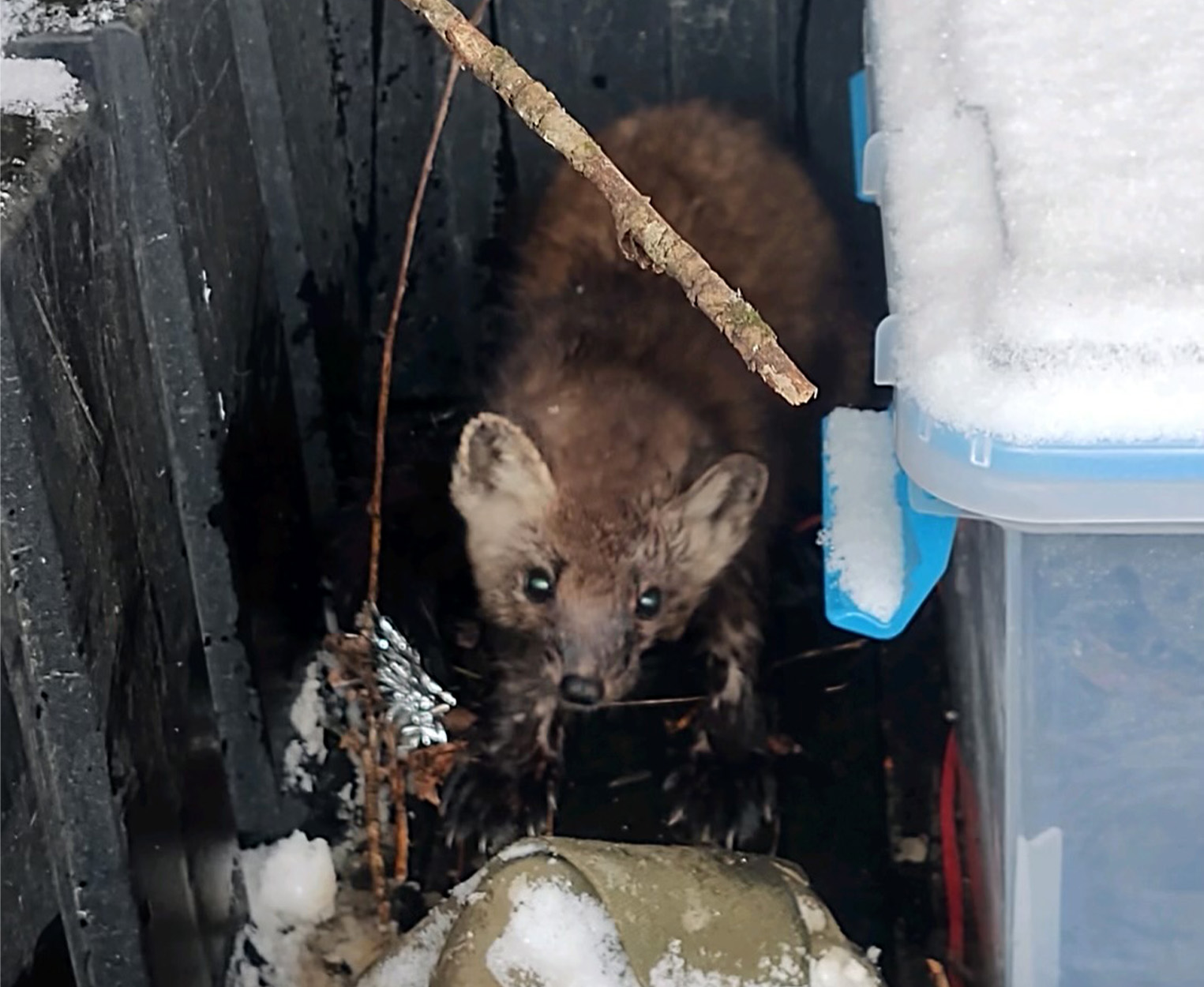A Minnesota trapper who inadvertently caught a pine marten out of season went above and beyond to release the critter. After notifying a conservation officer with the Minnesota Department of Natural Resources, the trapper performed CPR on the marten and successfully resuscitated it.
Minnesota conservation officer Nick Prachar tells Outdoor Life that he was the C.O. who received the trapper’s call on Dec. 30. He knows the trapper personally from all his years checking trap lines in the area and says the man wants to remain anonymous.
“If it had been anyone else, I would have called B.S. right away,” Prachar says. “But I know he’s so ingrained in the outdoors and cares so much about nature and [these] animals, that I wouldn’t put it past him to actually do CPR on a marten.”
The trapper was running lines for bobcats near Upper Red Lake last month when the pine marten got caught in one of his sets. He was using #220 body-gripping traps, according to Prachar, which are designed to catch an animal across its neck or chest and kill it almost instantaneously. The trapping season for pine martens had closed on Dec. 17, so when he saw what had happened, he immediately did the right thing by self-reporting it.
Prachar says these incidental catches happen occasionally, and that he usually responds to at least one call per year from a trapper who catches a pine marten out of season. State law requires trappers to notify the DNR when this happens, and to do their best to keep the animal alive. A conservation officer then investigates, and if everything appears in order, Prachar explains, the trapper must forfeit the animal but is not fined or cited. He says this would have been the case with the Dec. 30 incident, as the set was completely legal. But the trapper took things a step further.
“Some trappers would have looked at it and said, ‘it’s done,’ but he took the law to heart and did everything he could to give that animal another shot.”
Prachar says they were talking on the phone when the trapper said he saw the marten’s eye twitch. Prachar heard a scuffling sound and then the line went dead.
“He called me a little while later and said, ‘I got it back to life, but I still need you to come and tell me what to do,’” Prachar says, noting how aggressive martens can be when cornered. (Martens belong to the mustelid family, which includes stoats and weasels.) “My first reaction was, ‘You did CPR on this thing, and it didn’t eat your face off?’”
By the time Prachar arrived at the trapper’s home, the pine marten was “just hanging out” in the back of his Polaris Ranger. The animal hadn’t acted aggressively toward the man who saved its life, but it wanted nothing to do with Prachar.
“It was very upset, and I couldn’t get within 10 feet of the side-by-side,” he says. “I went to lower the tailgate and it started lunging at me, so I had to get a leaf rake and scoop it onto the ground. [Then] it took off running into the popples.”
Prachar adds that while he admires the trapper’s love of wildlife, he would never encourage someone to perform CPR on a wild animal, regardless of the species.
“I’m all for protecting wildlife, that’s the career I chose. But you’re not gonna find me giving mouth-to-mouth to a pine marten, and I definitely wouldn’t recommend anybody try it.”

